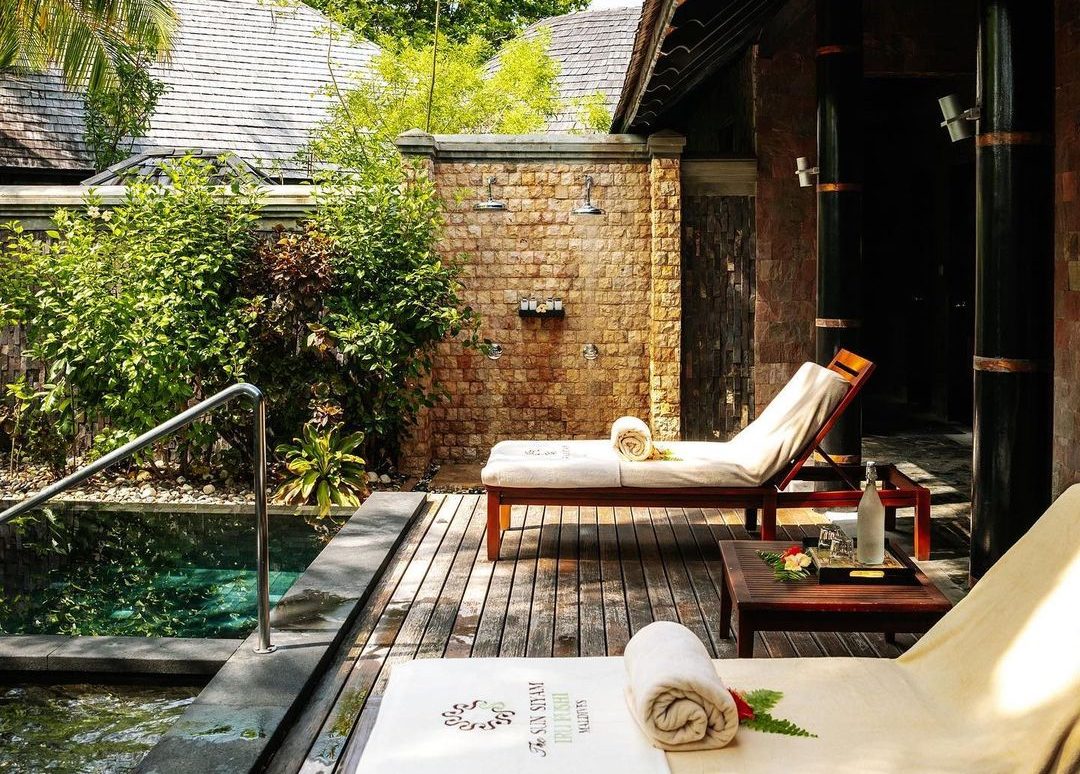After months of lockdown and travel restrictions, travellers looking for a secluded and activity-filled getaway in the Maldives are in for a treat. With novel comforts invested and stringent safety standards perfected, the Taj Group of Hotels have redefined its services and hospitality in its two stunning properties in the land of sun, sand and sea. Taj Exotica Resort & Spa, Maldives and Taj Coral Reef Resort & Spa, Maldives are ready and primed to once again welcome guests to their sandy shores.
Positioned globally for its signature hospitality and unparalleled experiences, the Taj Group of Hotels in the Maldives have encompassed all safety protocols defined by its parent company Indian Hotels Company Limited (IHCL) in conjunction with World Health Organization (WHO), as well as the Maldivian Health Protection Agency (HPA), Ministry of Tourism of the Maldives. Both Taj Exotica Resort & Spa, Maldives and Taj Coral Reef Resort & Spa, Maldives are fully equipped with well-trained staff, best practices and high-grade protective equipment and disinfectants to ensure the safety and comfort of guests. With the spirit of Tajness reinvigorated to face the new normal world, the resorts are committed to prioritise safety, hygiene and physical distancing while delivering authentic hospitality.
All staff have been trained to delight guests, safely and with minimum contact at all touch points. In addition, technology has been infused to several processes including check-in, check-out, non-invasive thermal screening, dining and digital payments to ensure seamless, no-touch yet personalised experiences.
Taj Group
To ensure physical distancing, the resorts have also redesigned layouts for seating and guest movement inside the hotels and out, including speed boats, resort buggies, lobbies, restaurants, service areas and common spaces. With safer rooms and regularly disinfected surfaces, furniture, crockery, linen and more, guests are reassured of utmost hygiene and safety. Taj hotels are also taking strict precautionary measures such as ensuring sufficient resting of suites and rooms after check-out before reoccupation.

Travellers are assured of convenience when flying in, with the Maldives Government implementing several measures to make the island destination a welcome retreat. While tourists are not subject to any quarantine measures upon arrival to the Maldives, they are also not required to submit any medical test results for entry. However, for the safety of all, local health authorities will be performing random testing at no cost to travellers, while those showing symptoms of COVID-19 upon arrival will be subjected to a PCR test at their own expense. Even when departing the Maldives, the authorities have made available testing services for tourists requiring COVID-19 test results to return home or continue travelling.
In preparation to reopening doors on 15th July, Taj Exotica Resort & Spa, Maldives and Taj Coral Reef Resort & Spa, Maldives have introduced several attractive offers for travellers to book now and travel later, saving up to 25% while receiving extra in-premise value additions.
With the pandemic redefining the way we indulge and travel, remote cast-away experiences are enticing, safe and reassuring. And what better option than to have an island for yourself? The Taj Group of Hotels in the Maldives is introducing the concept of island buyouts – unspoilt seclusion with an awe-inspiring backdrop in one of the world’s most magical destinations, all to yourself! Perfect for family getaways, wellness retreats or even high-level corporate meetings, island buyout can also be married with private flying, offered by Taj Air, renowned for its fine fleet of executive jets. This attractive travel option ensures that guests experience the best of Maldives with Taj hospitality whilst ensuring privacy, physical distancing and high levels of hygiene and safety.
The Maldives has always been a romantic and intimate destination, but the ocean has never looked so inviting and the sun-kissed sand appears even more golden under the radiant glow of summer. Dreamlike indulgence awaits travellers who are ready to succumb to their wanderlust in the Maldives with Taj – your safe haven away from home.
Visit www.tajhotels.com







